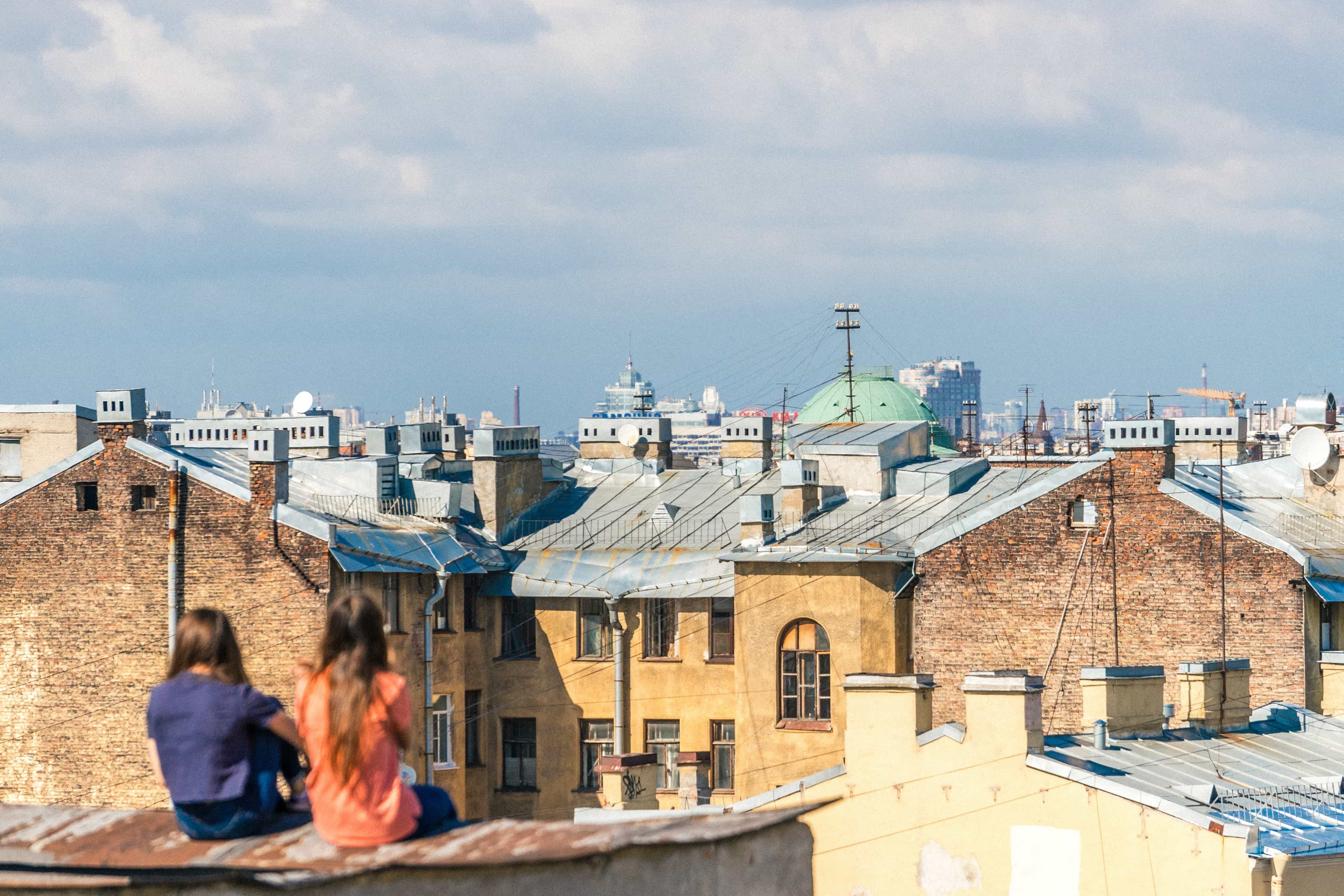Your Practical Moving Abroad Checklist
Moving abroad doesn’t have to be stressful. This moving abroad checklist will help you organise all the important things before your move.
Phoebe
Moving abroad is an exciting adventure that can quickly become stressful and costly if you don’t plan well. If you don’t find accommodation abroad early, don’t budget based on the country’s cost of living or pack the right things, you’ll end up running out of money fairly quickly. But it doesn’t have to be like that. All it takes is some research and prior preparation.
To help you keep track of all the things you need to consider when moving abroad, we’ve created a checklist based on the experiences of expats who’ve used HousingAnywhere and moved abroad just like you’re about to!
1. Learn the basics about the country and city
Moving abroad is a big decision and one that you shouldn’t take lightly. After all, you don’t want to realise that the culture doesn’t fit or that the weather is not to your liking. So here’re some aspects you should research when moving abroad to reduce culture shocks:

Culture
No 2 countries are the same and there’re bound to be cultural differences. For instance, while doing maintenance work or socialising on weekends is not frowned upon in Spanish culture, in German culture there’s a law about “quiet hours” that requires people to not make unnecessary loud noises. Similarly, while tipping is accepted in the German culture, in Italian culture it’s not considered necessary.
To avoid offending people and show respect towards the locals, spend some time learning about the cultural habits.__ This can include reading books, online articles, or watching videos about food, festivities, greetings, family life, dating, etc.
Language

One aspect of moving abroad is the language barrier if you don’t know the local language. For most expats, knowing English is sufficient if they’re moving abroad to work or study. However, if you truly want to integrate into the local culture, get out of the expat bubble, and not face a language barrier, knowing a few phrases is going to help you a lot.
Think along the lines of how to ask for directions, a good restaurant or the nearest bank. There’re so many apps available to help learn a language these days, like Memrise, Duolingo and HelloTalk. So, download a few and pick your favourite.
Weather
Weather will influence your daily life and what you pack before moving abroad. So don’t rely on stereotypes and make sure to check out the average temperatures throughout the year so you can pack accordingly.
2. Find out how easy or difficult it is to move abroad

Moving abroad can be easy or difficult depending on the country you’re moving to and your nationality.
For instance, European citizens can easily relocate to other EU member states and then get a job or apply to a university as their passport allows them freedom of movement.
But non-European citizens will most likely need to secure a university placement or be granted a work permit by a foreign employer before they can apply for a visa.
Overall, here’re the top things you should consider when moving abroad:
- If you’re a student, explore the best universities in the country or city you’re planning to study in. Look into the student culture, the courses, and whether getting internships or student jobs is possible.
- If you’re moving to work abroad, leverage online job sites, employment agencies, or networking sites to find companies that hire expats and sponsor visas (if applicable). Don’t forget to look into the average salary before deciding if moving abroad is worth it for your future goals.
- If you’re planning on freelancing or starting your own business, know that rules for foreigners are often strict and the process can take months. So start early!
- If you’re retiring, look into the best places for retirees, the cost of living, whether your pensions can be transferred and how much they’ll be taxed.
- If you’re a parent, learn about the education system, decide whether sending your child to a local or international school is better, and explore neighbourhoods that are close to parks, schools, and other daycare facilities.
When to start: This is your first step to becoming an expat, so this will kickstart all that follows. Allow at least one to 3 months, or longer to research everything and get the application process started.
3. Pick a city to live in
There’re lots of things that can determine which city you’ll end up moving to. For some people, this will depend upon where their new job or university is. For others, it’ll depend on personal reasons such as how much is the cost of living? Is the city lively? Is it good for families? Is it LGBTQ friendly?
If you need inspiration, here’s our roundup of some of the best European cities for expats:
4. Prepare a budget that fits the cost of living
Understanding the cost of living at a country and a city level is key when deciding where you want to move_ to. This will not only help you plan a realistic budget but also get you a visa as most visa applications require proof of sufficient finance.
For instance, did you know that the average cost of living in Spain is lower than the cost of living in Italy, even though the average salary in Spain is higher?
Don't forget the city level cost of living as your monthly budget will highly depend on which city you live in, where in the city you live in, your lifestyle, etc.
HousingAnywhere has several cost of living guides to help you prepare. Simply click on a city you want to move to and find the cost of living article:
5. Get your documents ready

Once you know you’re ready to move abroad, it’s time to check the visa requirements (is applicable) and gather the necessary paperwork. Few things can be worse than being in a new country and realizing that you don’t have the documentation that you’ll need to open a bank account, sign your lease or set up phone service.
Some of the most common documents include your:
- Passport and copy
- Passport photo
- Visa application form
- Birth certificate, marriage certificate, civil partnership agreement, or adoption certificate
- Proof of university enrollment, work contract/permit, or any similar document
- Proof of income, if applicable
- Private travel and health insurance
- A declaration or certificate to prove no criminal records
- Medical certificate as proof of good health and medical records, reducing immunizations
- Proof of qualifications (if applying for a job)
*You might need to translate and legalise your documents if they are not in English or the local language of the country you’re moving to. So start early as this process can take time!
6. Look for Accommodation

As an expat, it’s so difficult to know where and how to look for housing abroad. One of the best ways to secure housing from abroad is to use a trusted housing platform that verifies landlords, doesn’t require in-person viewings, and protects your rent until after you move in.
Some other ways involve asking your work or university if they’ve got any leads, but they’ve limited housing options. You could check Facebook groups, but it’s hard to avoid scams online. Opting for agencies is a more trustworthy alternative but they’re expensive.
Here’re the top things to consider when renting housing abroad:
- Consider the time it will take to find housing. For instance, in big cities like Barcelona you’ll find housing in 1-2 months. But in compact cities such as Brussels or in countries like The Netherlands where there’s a housing crisis, it can take months to find a rental!
- Set a realistic budget and don’t forget to factor in utility bills and furniture costs. Some neighbourhoods are more expensive than others. Similarly, renting an apartment with a friend and splitting costs will often be cheaper than renting a studio alone. So look into the neighbourhoods and the average rent for rooms, studios, and apartments to decide where you should live.
- Check if there’s good connectivity. You might want to look into a rental that’s well connected to public transport so you can easily get to your work, university, or the city.
- Decide if you want to share or live alone. Depending on your budget and preference for location, you might need to share a house with flatmates. This can have several benefits for expats such as splitting rent and bills and having a new group of friends who can help you.
7. Check Your Travel Options

Find out the best way to travel to your new home. Driving is a great option for those with limited luggage and those moving to a neighbouring country. Alternatively, trains, buses, or ferries can be cheap if booked in advance or during a promotional period. They often don’t have luggage limits, making them a great option. Planes can be expensive and it’s best to look at flying mid-week, from a not too busy airport.
8. Decide what to pack

Being prepared is one of the most important things to keep in mind whenever you’re relocating. But remember to not overstuff your luggage as you can easily buy essentials abroad as well.
- Clothing: this will depend on the climate. To save space, carry 2-4 items for each style of clothing and purchase the rest abroad.
- Shoes: carry only 1 pair of shoes, sandals, slippers, and optionally heels or hiking boots.
- Essentials: plenty of essentials can be found abroad, such as towels, bedsheets, etc. So focus on packing things you can’t easily get abroad, e.g. some cash until you get a bank account, your favourite perfume, birth certificate, braces, etc.
- Medication: pack your prescription meds, at least for the first few months, and make sure that it’s legal in the country where you’re moving to.
- Electronics: besides your phone, laptop, and earphones, don’t forget to pack adapters, chargers, and a USB stick with a backup of all important documents.
Tips for packing:
- Roll your clothing to save space and prevent wrinkles.
- Place heavier objects in your carry-on. While checked baggage is weighed, carry-ons usually only need to be a certain size.
- Wear bulky items in layers. This way they stay out of your luggage, and you can remove them if necessary.
- Pack small items in your shoes.
- Use the time-tried method: if you haven’t used it in 6 months, chances are you don’t need to pack it.
9. Prepare for what’s coming ahead
Once you arrive in your new home country, you’ll need to get a lot of things sorted to kickstart your life abroad. This includes:
- Get your residence permit (if applicable)
- Register yourself at the city hall
- Get health insurance
- Open a bank account
- Get a local SIM card
- Register for tax and social security if you’re working
- Exchange your driver’s licence if you’ve one
With these tips in mind, you’ve got the perfect checklist for your move abroad. Good luck with this new adventure!
Please reach out to content@housinganywhere.com if you have any suggestions or inquiries about the content on this page.
Related articles
In this article
1. Learn the basics about the country and city
2. Find out how easy or difficult it is to move abroad
3. Pick a city to live in
4. Prepare a budget that fits the cost of living
5. Get your documents ready
6. Look for Accommodation
7. Check Your Travel Options
8. Decide what to pack
9. Prepare for what’s coming ahead
Start your safe accommodation search
The best way to be certain that you’re not being scammed is to work with a trusted housing platform
Start my search

